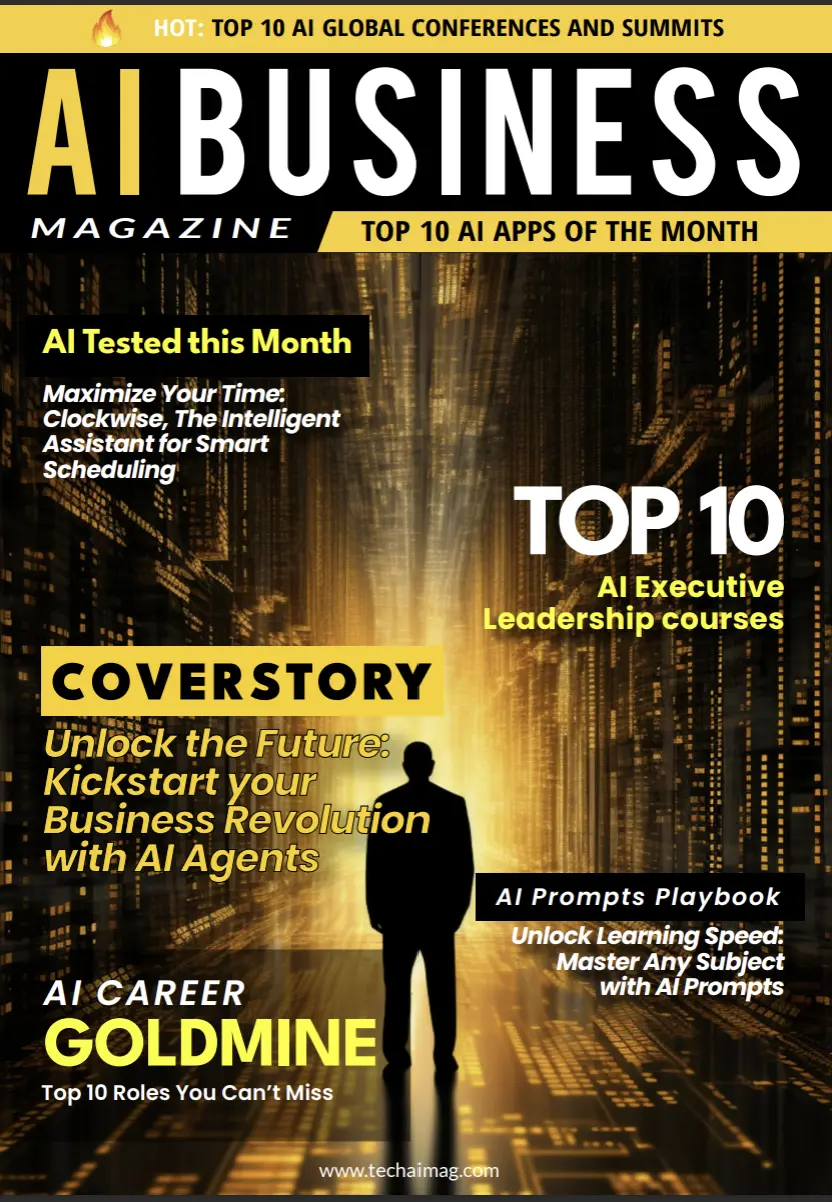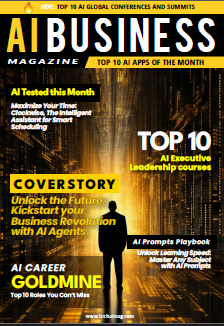Overview
In the current swiftly changing technological environment, AI jobs are evolving at an extraordinary rate. As we progress into 2025, the sector has experienced a notable change: experts are now regarded as more important than generalists. Employers are progressively looking for applicants who possess specialized knowledge in particular AI fields instead of those who have general but limited understanding across various areas.
Let’s examine the leading 10 AI career paths that are taking over the job market in 2025:
1. AI Product Manager
Expected salary: $112,841-$139,861 annually
AI Product Managers connect technical teams with business goals, managing the entire development lifecycle of AI products from initial idea to market release. They work together with data scientists, engineers, and stakeholders to establish product roadmaps, prioritize features, and ensure alignment with company objectives. In contrast to conventional product managers, they must address the specific challenges of AI development, such as data needs, model effectiveness, and ethical issues. They convey intricate technical ideas to non-technical stakeholders; while making sure the technical team comprehends business priorities.
Key skills required: Leadership, knowledge of AI applications, project management, technical communication, grasp of algorithms and data requirements.
Relevant certifications
2. AI Research Scientist
Expected salary: $136,000-$225,000 annually
AI Research Scientists expand the limits of what can be achieved in artificial intelligence. They create and examine advanced models, algorithms, and methods that address intricate challenges or enhance existing solutions. Their tasks frequently include comprehensive experimentation, thorough testing, and careful documentation. Beyond the lab, they contribute to the scientific community by publishing papers, presenting at conferences, and collaborating with fellow researchers. Their discoveries frequently lay the groundwork for future commercial AI applications.
Key skills required: Advanced degree in computer science/mathematics/statistics, research methods, algorithm design, scholarly writing, theoretical knowledge in AI.
Relevant Certifications
3. AI Ethics Officer
Expected salary: $120,000-$180,000 annually
AI Ethics Officers guarantee that AI systems are created and implemented ethically. They assess AI initiatives for possible ethical issues, such as bias, privacy problems, transparency challenges, and societal effects. They create thorough ethical guidelines customized for their organization’s AI projects and collaborate across functions to establish safeguards that encourage fairness, accountability, and trust. As the regulatory environment changes, it keeps teams updated on compliance obligations and industry standards. Their role is becoming ever more vital as AI systems take on more significant decisions in healthcare, finance, criminal justice, and other critical areas.
Key skills required: Analytical thinking, effective communication, understanding of AI frameworks and legislation, policy formulation, diverse academic background.
Relevant Certifications
4. Cybersecurity Analyst with AI Expertise
Expected salary: $120,000-$200,000 annually
These expert analysts utilize AI to protect against more complex cyber threats. They utilize machine learning algorithms capable of identifying anomalies, forecasting possible vulnerabilities, and reacting to attacks instantly. As opponents likewise embrace AI-driven methods, these specialists participate in a technological arms race, persistently enhancing defensive systems to maintain an advantage. They examine assault trends, deploy preventative actions, and organize responses to incidents when violations happen. Their efforts encompass both conventional network security and new AI-related risks, including adversarial assaults on machine learning models.
Key skills required: Basics of cybersecurity, implementation of AI/ML, expertise in intrusion detection, threat evaluation, coding for security software.
Relevant Certifications
5. Computer Vision Engineer
Expected salary: $125,000-$226,000 annually
Computer Vision Engineers develop systems that can “see” and understand the visual environment. They create algorithms that allow machines to identify objects, individuals, and actions from images or video footage. Their efforts drive self-driving cars maneuvering through intricate settings, facial recognition technologies accessing smartphones, medical imaging devices detecting illnesses, and manufacturing systems examining goods for flaws. These engineers maintain a balance among performance, accuracy, and computational efficiency while tackling issues such as different lighting scenarios, occlusions, and adversarial instances that could deceive their systems.
Key skills required: C++/Python coding, familiarity with visual sensors, proficiency in object detection, image segmentation, and algorithm optimization.
Relevant Certifications
- MathWorks Computer Vision Engineer Professional Certificate
- Master the computer vision skills behind advances in robotics and automation
6. Data Scientist
Expected salary: $110,000-$170,000 annually
Data Scientists act as interpreters who transform unrefined data into actionable insights and forecasting abilities. They extract value from large datasets by means of statistical analysis, machine learning, and data visualization. In addition to technical analysis, they are skilled at posing the appropriate questions and conveying results to influence organizational decision-making. They create predictive models that anticipate customer actions, market developments, and operational obstacles. Their efforts assist companies in enhancing supply chains, tailoring customer experiences, uncovering fraud, and discovering new prospects concealed within their data.
Key skills required: Data extraction, expertise in analytical tools, statistical assessment, forecasting models, data representation, business insight.
Relevant Certifications
7. Smart Home Designer
Expected salary: $70,000-$120,000 annually
Smart Home Designers craft environments where technology effortlessly improves comfort, convenience, and efficiency. They engage with homeowners to comprehend their lifestyle, preferences, and challenges prior to crafting detailed plans that merge lighting, security, entertainment, climate control, and additional systems into a unified ecosystem. They choose suitable technologies, manage the installation process, and set up automation routines that anticipate the needs of residents. As energy efficiency grows more significant, they also refine systems to lower usage while preserving comfort. The top designers develop user-friendly interfaces that simplify complex technology for every household member.
Key skills required: Home design Knowledge, technology incorporation skills, networking basics, automation coding, energy efficiency awareness.
Relevant Certification
8. AI Customer Experience Specialist
Expected salary: $70,000-$120,000 annually
AI Customer Experience Specialists create and enhance AI-driven interfaces that please instead of annoying users. They create chatbots, virtual assistants, and various AI tools that comprehend natural language, react suitably to customer questions, and smoothly transfer to human agents when required. They consistently examine interaction data to pinpoint and resolve issues, train models on fresh situations, and enhance abilities. Their job involves balancing the effectiveness of automation with the personal interaction that customers desire. As the primary representatives of numerous brands, the systems they create greatly influence customer satisfaction and loyalty.
Key skills required: Principles of UX, expertise in conversational AI, mapping customer journeys, methodologies for testing, analysis of metrics.
Relevant Certification
9. Robotics Engineer
Expected salary: $90,000-$150,000 annually
Robotics Engineers animate machines by creating systems capable of sensing, processing, and engaging with the physical environment. They create hardware and software elements for robots that include industrial automation systems, surgical aids, and household assistants. Their efforts combine mechanical engineering, electronics, computer science, and progressively, artificial intelligence. They program robots to execute designated tasks, create control systems for accurate movements, and establish safety protocols to safeguard humans working near their inventions. As robots gain greater autonomy, these engineers concentrate on developing systems capable of adjusting to evolving surroundings and learning from their experiences.
Key skills required: Engineering degree, software programming for robotics, sensory integration, hardware diagnostics, AI deployment.
Relevant Certification
10. AI for Healthcare Specialist
Expected salary: $150,000-$250,000 annually
Healthcare AI specialists operate at the convergence of medical science and artificial intelligence, creating systems that enhance human abilities in disease diagnosis, tailoring treatment strategies, and advancing patient outcomes. They develop models for medical imaging to identify cancers sooner than the human eye can detect, build predictive analytics to recognize patients likely to face complications, and produce decision support tools that assist doctors in handling complicated cases. Their tasks demand both specialized knowledge and a comprehensive grasp of medical settings, clinical procedures, and stringent regulatory standards. Serving as reliable allies to healthcare providers, they assist in deploying AI solutions that enhance human medical expertise instead of substituting it.
Key skills required: Knowledge of the medical field, AI applications specific to healthcare, comprehension of diagnostic procedures, awareness of healthcare regulations, and effective interdisciplinary communication.
Relevant Certifications
Final Thoughts
As we move further into 2025, these specialized AI roles remain to provide outstanding prospects for professionals aiming to create substantial effects in their industries while receiving attractive pay. For individuals contemplating a career in AI, concentrating on building in-depth skills in one of these fields might be more beneficial than acquiring general knowledge across various areas.







